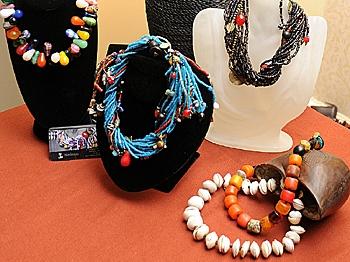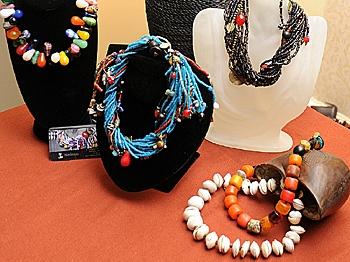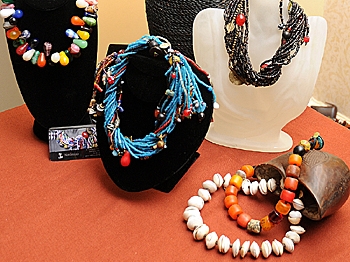Her work is inspired by the history of the beads she uses in her necklaces and bracelets, Nasimiyu Wekesa says in an interview with The Epoch Times. She grew up in Kenya where beads were a part of life.
“In every ceremony everybody had beads. And we used to wear them and cherish them and we used them in different ceremonies,” she recollects. She came to the United States 15 years ago and travels back to Africa frequently, collecting trade beads for her work.
Knowing how the girls cherished the beads gives her a deep respect for them as she places them in her jewelry. “Beads were like our clothes,” she said. At each point in a girl’s life, entering adulthood, getting married, she would be given beads by her grandmother, accumulating her own collection slowly throughout her life.
Wekesa says, “Beads were personal possessions in Africa, some people love them very much. Even when they die, they say, ‘You have to bury me with my beads.’”




